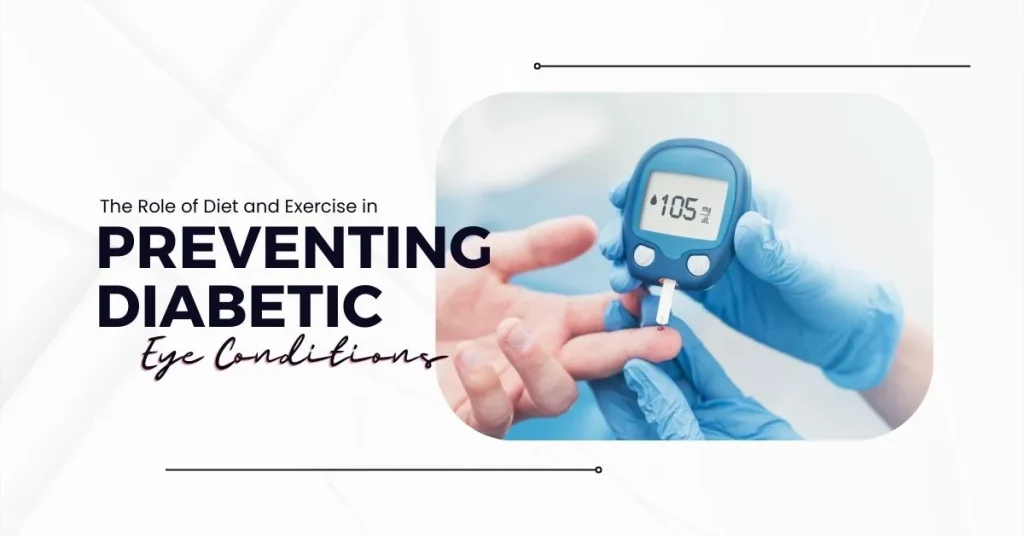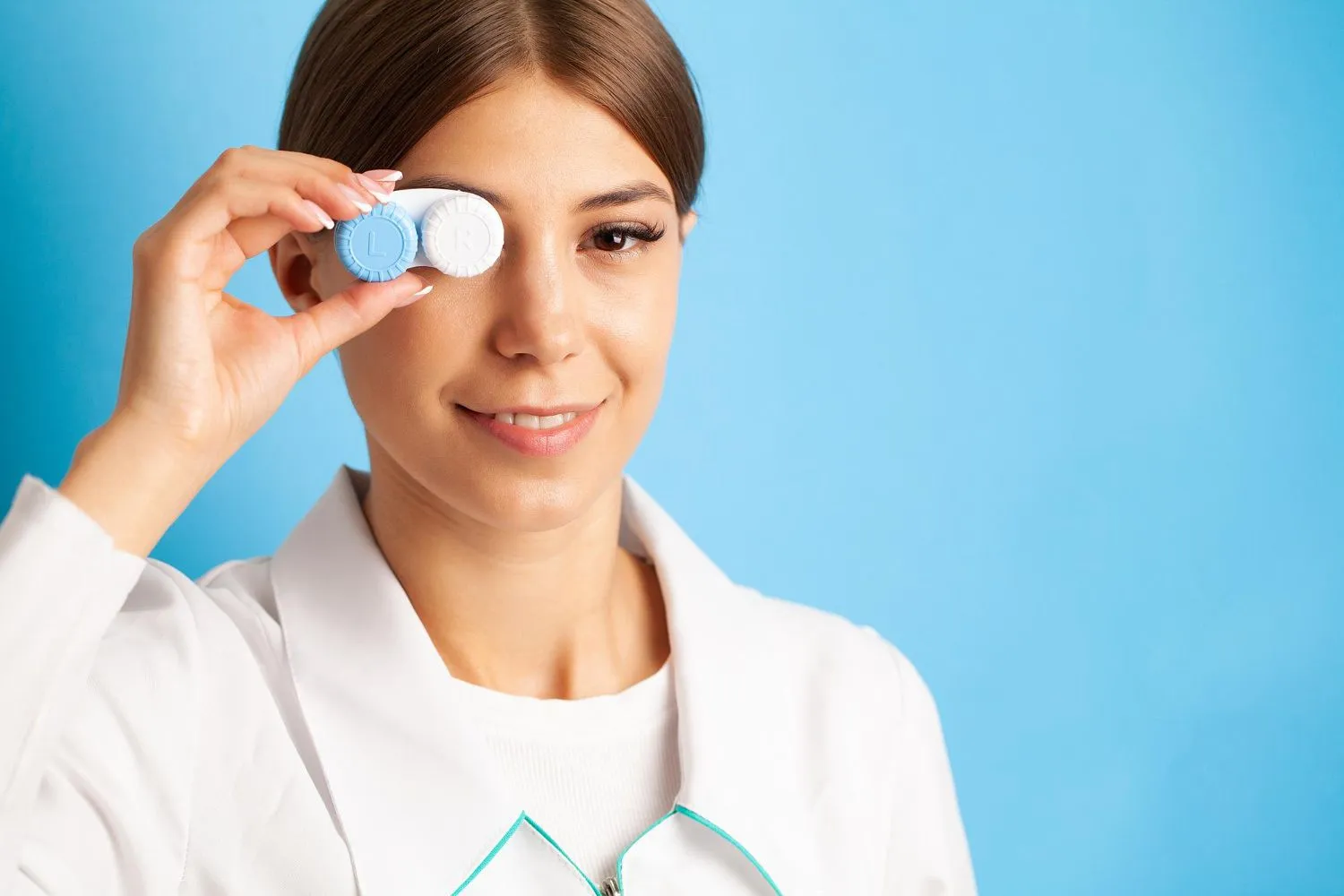The Role of Diet and Exercise in Preventing Diabetic Eye Conditions

Diabetes has serious side effects, including diabetic retinopathy and other diabetic eye disorders. These disorders are brought on by persistently elevated blood sugar levels, which can harm the retina’s blood vessels. However, controlling diabetes and avoiding these eye disorders depend heavily on lifestyle changes, including food and exercise.
How Diabetes Affects Eye Health
High blood sugar levels can damage the blood vessels in the retina, leading to diabetic retinopathy, one of the most common and serious eye complications for diabetics. Additionally, those with diabetes are at greater risk for glaucoma and cataracts, both of which can lead to vision impairment or loss. Maintaining healthy blood sugar levels through diet and exercise is critical for preventing these complications.

The Impact of Diet on Eye Health
- Control Blood Sugar Levels: Foods high in fiber, protein, and healthy fats help keep blood sugar stable. Aim to include complex carbs like whole grains, legumes, and leafy greens rather than simple sugars and processed foods.
- Reduce Inflammation: antioxidant-rich foods such as berries, nuts, and leafy vegetables combat inflammation, which can worsen eye damage. Omega-3 fatty acids from fish, flaxseed, and walnuts also support eye health.
- Limit processed foods: processed and sugary foods can lead to blood sugar spikes, accelerating complications. Choosing whole, nutrient-dense foods is essential for keeping blood sugar in check.

The Role of Exercise in Diabetic Eye Health
- Improving Blood Sugar Regulation: Regular exercise helps the body use insulin more effectively, reducing high blood sugar and, consequently, the risk of retinal damage.
- Reducing Blood Pressure: High blood pressure is a risk factor for diabetic retinopathy. Aerobic activities like walking, cycling, and swimming can help maintain healthy blood pressure levels, reducing eye strain and pressure.
- Supporting Overall Eye Health: Exercise promotes blood circulation, ensuring that eyes receive the necessary oxygen and nutrients to function well, ultimately lowering the chances of diabetic complications.
Creating a Balanced Routine
- Diet Plan: Work with a nutritionist to develop a diet tailored to diabetic needs, focusing on nutrient-dense, low-glycemic foods.
- Exercise Routine: Aim for at least 150 minutes of moderate-intensity weekly exercise. Incorporate strength training for added benefits.
- Regular Checkups: Include eye exams in your health routine, as early detection is key to managing diabetic eye conditions.
- Additional Tips for Diabetic Eye Care
- Stay Hydrated: Proper hydration supports metabolic function and eye health.
- Avoid smoking: smoking increases the risk of diabetic complications and eye disease, so quitting can be very beneficial.
- Monitor Blood Sugar: Consistent blood sugar monitoring helps make dietary adjustments and ensures timely intervention if necessary.
Adopting a proactive approach to diet and exercise can significantly improve the prevention of diabetic eye conditions. By incorporating balanced meals, regular physical activity, and routine eye checkups, individuals can manage diabetes more effectively and protect their vision for the long term
Book your appointment now for all eye-related services.
Your Vision Our Focus


